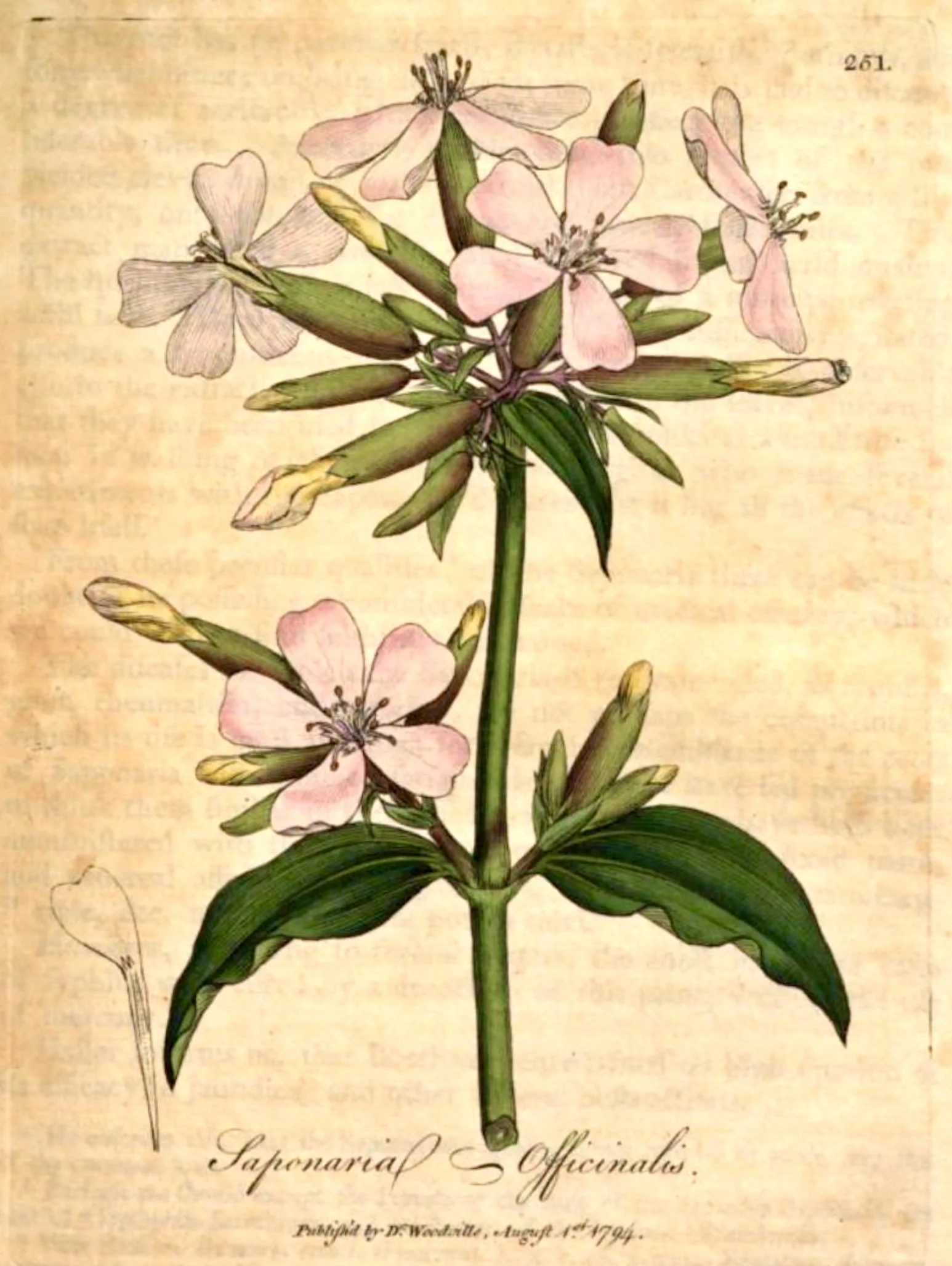Soapwort
Soapwort
SOAPWORT SEEDS
Saponaria officinalis
An ancient and easily-grown species, sometimes called “Bouncing Bet" or “Latherwort", soapwort is a natural source of soap-like water-soluble saponins. Both the roots and shoots produce a gentle cleanser than can be used with all botanically-dyed fabrics and removes centuries-old grime from various organic textiles. This selection is very vigorous and adaptable and possibly more suitable for use as soap than ‘Flouncy’, which is almost too pretty to disturb.
This stoloniferous perennial can tolerate sun or shade and moist or dry soils, and will spread to form a large patch where it is happy, but should not be considered invasive. Plants can be cut back several times over a single season to make suds. The roots contain the highest concentrations of saponins, and should be harvested just before plants begin to flower. Left unharvested, plants in bloom can grow to around 2’-3’.
Rita Buchanan advises using about one quarter cup of plant material per quart of water. A modestly sized patch (around 4' square) will make many gallons of wash water. All parts of the plant can be harvested and dried for later use, although they should be allowed to soak in water for an hour or more before aggitating.
The pale pink single flowers perk up in the evening and release a pleasant perfume that attracts pollinating moths. Soapwort is fairly deerproof and quite happy on the edge of a woodland and along old fences and hedgerows. Here in the Hudson Valley the species is often found growing alongside old overgrown streams in the vicinity of colonial-era homesteads.
These seeds germinate best at cool temperatures. Sow outdoors in very early spring, or start indoors. Kept moist in bright light at around 60°F, seeds typically germinate over the course of a few weeks. Once germinated, prick out to grow on in individual pots. Harden off before transplanting in spring or autumn.
Soapwort will self-sow and spread over time, especially in moist semi-shaded soils.
Packet contains at least 100 seeds.
